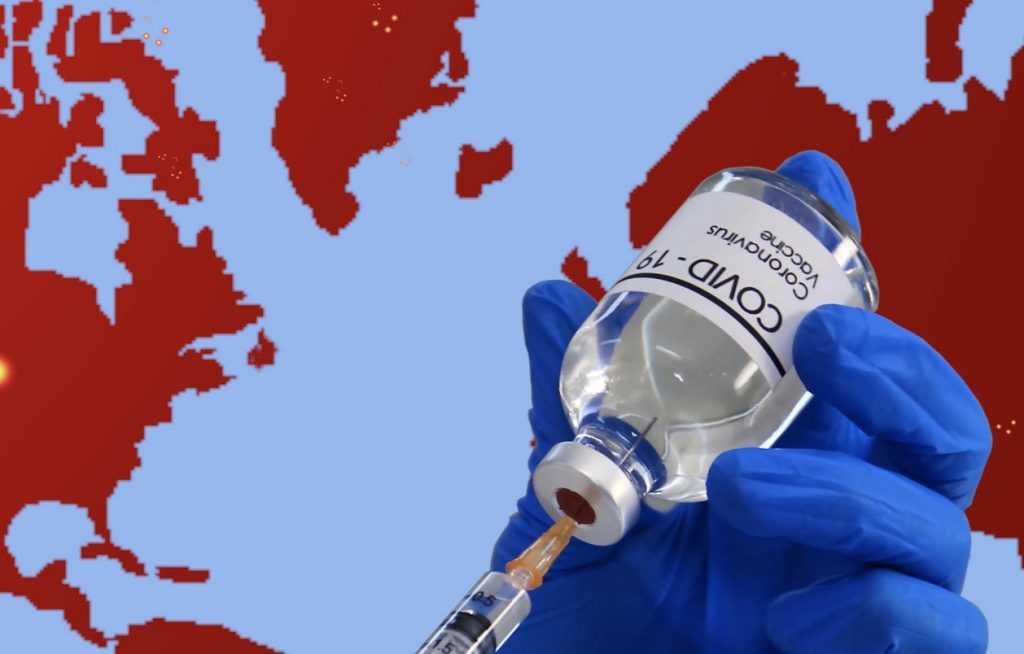By Kerry Boyd Anderson
The United States may have joined the “vaccine diplomacy” race late, but it is trying to overtake Russia and China, which at first had significantly more momentum than other countries.
Because of the focus on previously vaccinating its population, the domestic vaccination campaign in the U.S. has been quite successful, with 48 percent of Americans now fully vaccinated. Most Americans who wanted to be vaccinated against Covid-19 have already received their doses.
Now the campaign has shifted to conducting clinical trials for children, and to trying to convince Americans who are reluctant to get vaccinated. This progress has enabled the US to start focusing more on helping other countries fight the pandemic.
When US President Joe Biden took office in January this year, his team was aware of criticism that the US was not doing enough to help global efforts to combat the pandemic.
Biden took an initial step in February when he pledged $ 4 billion to COVAX, the multilateral organization set up to ensure equal access to Covid-19 vaccines. Then in March, Washington announced it would send 4 million doses of the AstraZeneca vaccine to Mexico and Canada.
Meanwhile in April, the administration announced plans to share 60 million doses of the AstraZeneca vaccine with other countries, after US regulators approved it. Those initial steps were relatively small, especially given that Russia and China were sending their vaccines to many countries, even though their domestic programs were moving very slowly.
However, in recent weeks, the US has been engaged in providing vaccines to countries around the world. The change of approach began with the announcement that it would donate 80 million doses within this summer from its vaccine stockpile.
75 percent of those doses will go to COVAX, to be distributed to South and Central American countries, Asia and Africa. The US will send the rest to specific countries, such as neighboring Mexico and Canada, Haiti, South Korea, Afghanistan and several other countries in Asia, Eastern Europe, the Middle East and Africa.
Biden also accompanied the move with another announcement in June, stating that the US government would buy 500 million doses of the Pfizer vaccine to donate to countries around the world. The US will work with COVAX to distribute these doses.
Biden is also backing efforts to expand vaccine production in other countries, as he has backed the controversial idea of temporarily revoking the vaccine patent. U.S. donations represent very important steps in trying to vaccinate the entire world population.
In terms of scale, the 500 million doses of Pfizer make up far more than the 121 million vaccines COVAX has delivered so far. However, this amount is still far from COVAX ‘s target to distribute 2 billion doses within this year.
There are several reasons why the US is interested in donating vaccines to other countries. Basically, all countries will benefit from the end of this pandemic. As long as the Covid-19 virus continues to wreak havoc in other countries, it will continue to be a threat to the health of Americans.
The US economy is closely linked to the global economy, which will not fully recover until the pandemic is brought under control. But the US has other motives as well. For many policymakers, there is a moral imperative to help the rest of the world, especially now that most Americans who wanted to be vaccinated have already done so.
A priority for the Biden administration is to make foreign policy a useful tool for ordinary Americans, and the White House has stressed that the deal with Pfizer will increase GDP and jobs in the US.
Another factor is the rivalry with Russia and China in the “vaccine diplomacy” race. The latter promised to provide vaccines much earlier than the US. Moscow and Beijing have repeatedly denounced the alleged greed of the US and Europe in the vaccines report.
This campaign gave them influence, as it destroyed the reputation of the West. Russian and Chinese efforts, however, have encountered significant problems. The World Health Organization (WHO) has not yet approved Russia’s vaccine, and the latter has faced significant problems and delays in the production and supply of vaccines, often failing to meet expectations.
As the domestic vaccination program is accelerating, Russia’s ability to export the Sputnik vaccine may decline further. Both Chinese vaccines have been approved by the WHO, which seem to help prevent the severe form of the disease, but there are serious questions about the effectiveness of vaccines in preventing the spread of Covid-19.
Some countries that widely used Chinese vaccines still experienced large new waves of Covid-19. While Russia and China were initially at the forefront of this race, the US now hopes to use its much more effective vaccines to defeat both of these countries in the vaccine diplomacy race.
Biden hopes that the United States will be the “vaccine arsenal” that will defeat the pandemic, so he placed the issue at the top of the agenda in the context of a broader competition between democracy and authoritarianism.
The UK has announced its plans to donate 100 million doses to the COVAX initiative, while EU leaders say they will offer at least another 100 million doses. Much will depend on how smoothly the efforts of the US, Europe, Russia and China move forward in the coming months.
Vaccines are already part of a global geopolitical war. This can have positive consequences for the world. If competition motivates some countries to provide more vaccines to others, it can benefit many people, and it can help end the pandemic, regardless of who wins the “vaccine diplomacy” race.




